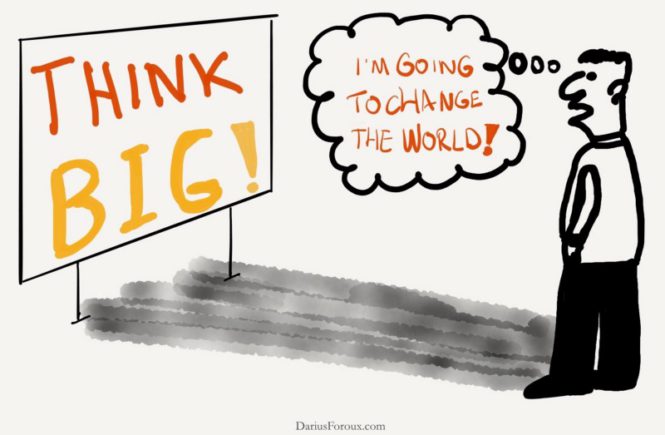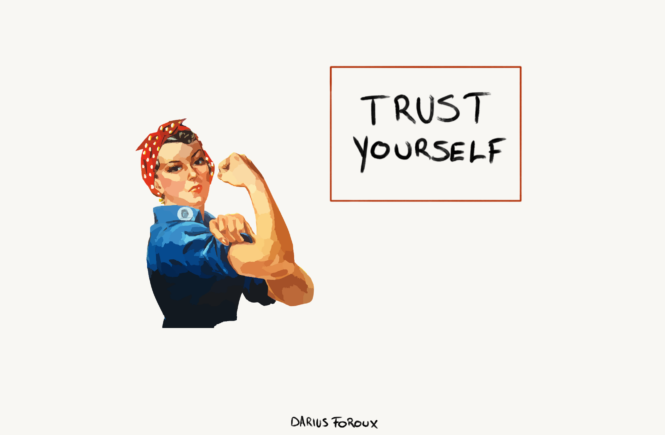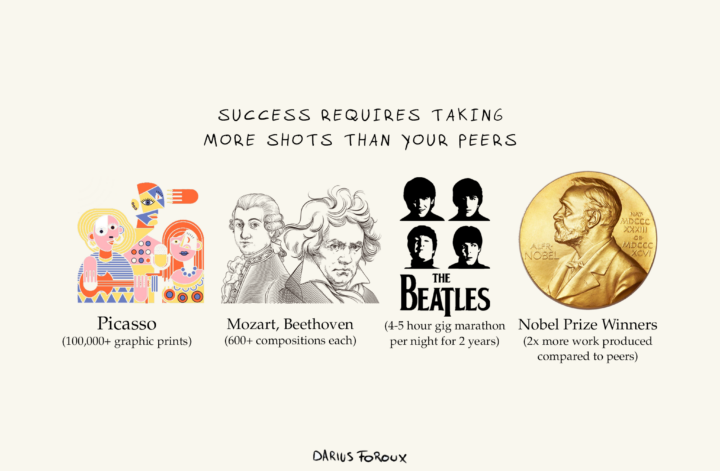Do you sometimes feel like you’re wasting your potential? And do you also feel unsure about how you can even reach your full potential?
If so, you’re like any other ambitious person who wants to make the best of his/her life. Because to me, that’s what “reaching your potential” means.
We all have limited time on our hands. Some live longer than others. But you and I both know that it’s not about how long you live, it’s about what you do with the time you’re alive.
It’s about leaving everything on the table and making sure you live up to your inner drive. Look, when I talk about reaching your potential, I’m not talking about what other people or society thinks we should do with our lives.
When you chase empty goals and objects, you become restless. Instead, chase your own potential and forget about everything external. Become the best person you can be. That’s the only honorable aim there is.
I’ve studied people who committed their lives to chase their full potential. Not only famous people like Muhammad Ali, Helen Keller, Thomas Edison, Malcolm X, or any other person who made an impact on the world.
I’ve also learned many lessons from “normal” people I know personally. People who learn every day, give it their all, keep growing, and get closer to their full potential.
What does it take to do that? How can we do it too? I identified 7 skills that almost all of these great people had in common. Here they are.
1. Self-Awareness
You must be comfortable with who you are and what you are. Don’t try to be something you’re not. And don’t try to change yourself just because others tell you to.
Instead, know who you are. And if you don’t know, find out. Read, write, think, talk. That’s self-awareness: It only requires you to be aware of your thoughts.
And when you’re self-aware, you automatically learn more about who you are—which is called self-knowledge. But it all starts with being aware. No awareness? No knowledge.
I’ve made a list of 20 questions you can use to improve your self-awareness. Use it to improve this skill.
2. Leadership
First, focus on yourself. Fix your own problems. Become a stable person who you can rely on.
When you do that, focus on inspiring others to do the same. The best way to help others is to teach them to rely on themselves.
Sick and narcissistic people want to make people dependent on them. Leaders teach others to be independent. How? By setting a good example. There’s no better way to lead.
3. Writing
Better writing leads to better thinking. And better thinking leads to better communication. Better communication leads to better results in your career.
“What?! I never thought the writing was that important!” When you get good at one thing, it will help you to get better at other things. You see?
It was only when I started writing that everything “clicked.” When you become a better writer, you can easily express yourself and start making connections. That will improve your career in ways you never imagine.
4. Mindfulness
My definition of mindfulness might be different than yours. To be clear, I’m not talking about meditation, yoga, or Zen Buddhism.
I’m talking about being a calm and mindful person. A person who’s in control of their thoughts and emotions. A person who’s solid as a rock. A person who others can rely on.
But achieving that inner peace requires much training. I don’t think we can ever fully master this skill. But by practicing control over our thoughts, we can get better.
My favorite way to become more mindful is to be present. The more I stay in the present moment, the more mindful I am. The aim is never to be lost in thoughts. It’s to be here.
5. Productivity
The funny thing about mindfulness is that people assume living in the present removes your drive to achieve your goals.
The reverse is true. The more present I am, the more desire I feel to improve my life. And how do you improve your life?
You already know it. I don’t have to tell you that work is the only way to achieve things. Thinking about achieving your goals will not do anything real for you.
Become a person who’s productive every day. Make use of your time. Don’t just waste it on watching tv, hanging out with your friends, gaming, or any other mindless routine activity.
Know how to get the most results in the least amount of time. That’s the ultimate aim of productivity skills.
6. Perseverance
Some days, I want to give up. You know why? Because some days you don’t see any results in your life. You work, work, work, and you get nothing in return.
For years, I studied and worked without seeing any results. No recognition, no money, and no rewards. Just me, plowing ahead.
But one day, after years of work, I started seeing some results. I got better at what I did, felt more confident, and started earning more.
But if I didn’t persevere, I wouldn’t get any of those things. That’s why I don’t quit striving for betterment. And neither should you. Ever.
7. Excellence
I half-assed many things in my life. “Let’s just get it over with,” was my motto. I was so impatient that I hardly did anything well. I just put in the minimum effort. Hence, I was never the best at anything.
But then I realized that excellence is a skill. Look at Robert Greene who took 6 years to write another book. Or Lebron James who worked out during every off-season of his career. Or Helen Keller who published 5 books, despite being deaf and blind.
But this is also true for successes that don’t get attention in the media. Look at the top salesperson in any given organization who arrives early and leaves late every day. Or the mother who sacrifices nights out and dinner parties to raise her kid with all of her attention and love.
That’s called excellence.
No matter what you do. Do it the best way you can—or not at all. If you want to reach your full potential, that’s the quickest route. It’s also the hardest. But that shouldn’t be a surprise to you.




